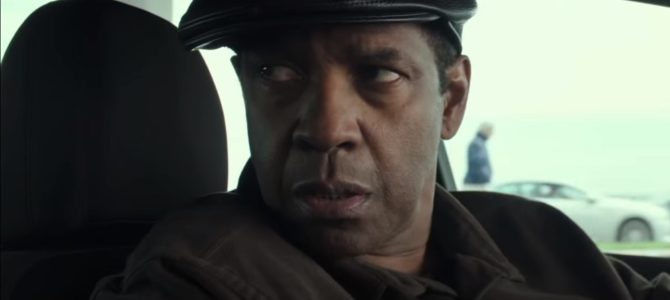“The Equalizer 2,” the sequel to the surprise 2014 hit adapted from the 1980s television series, has been largely denounced by movie critics as mindlessly brutal. Peter Sobczynski at RogertEbert.com called it “sadistic” and “stupid.” Variety blasted the film as “grisly exploitation.” NPR’s Chris Klimek labeled it “violence porn.”
Critics are often unkind to the revenge/vigilante genre. As far back as Pauline Kael’s review of the Clint Eastwood vehicle “Dirty Harry” (1971), which she blasted as “fascist,” the genre has never been able to catch a break from critics.
In many ways this has been justified. More often than not, this genre has promoted violence for its own sake, and rather than attempt character development, directors try to top each other with more explicit gore. As a result, the “good guys” are interchangeable from the “bad” ones. In 1940, George Orwell noted this feature in American hard-boiled literature by asserting that the only difference between the police and the criminals was that the cops were better organized.
But the critics of this Denzel Washington film have ignored its underlying morality that others of this type lack. In this manner “The Equalizer 2” resembles the best of another underappreciated genre: the comic book.
At its best, comics affirm the maxim that “character matters.” What separates the heroes from the villains lies in what both do with their powers. The heroes are the ones who use their abilities altruistically, while the villains are those who use their powers to line their pockets or enslave mankind.
By this definition, Washington’s Robert McCall is a hero. Once again, Washington is a former black arts operator who honed his lethal skills in wet-work operations for the Central Intelligence Agency. But rather than parlay his combat skills into high-paying mercenary jobs, he labors below his pay grade in blue-collar jobs (in this film he has switched from hardware salesman to Lyft driver), and only uses his combat skills when his friends and even mere acquaintances are brutalized by criminals.
He is Batman without the wealth, using thuggish methods for altruistic reasons. He seeks to balance justice on the local level.
Washington, a rumored conservative who once thought of becoming a minister, clearly likes McCall’s Old Testament-justice aspects. But unlike other vigilantes, he uses non-violent methods to help his friends. In the first film, he motivated a fellow employee at the hardware store to lose enough weight to become a security guard. This time around, he is attempting to steer a black youth away from a life of crime and into art school.
Washington, unlike other actors of his generation, never attempts to prove that he is macho enough to take out villains 30 years his junior. Yet, at 63, he is physically plausible when beating up a roomful of criminals.
But he is at his best when not using karate chops and head blows. He soars in the scenes with the street youth, perhaps attributable to his admission that he almost once embarked on a life of crime.
The film does falter when it brings in unnecessary backstory to Washington’s character. It fleshes out his duties as a government assassin and why he is off the CIA grid. The character worked best when McCall was mysterious and quirky: Why did he try to read all of his late wife’s favorite books? Why did he have insomnia? Most intriguing of all, why did he time his kills with his stopwatch?
That said, the film is hardly “violence porn,” but a reminder that vigilantes can do bad things for the best of reasons.









